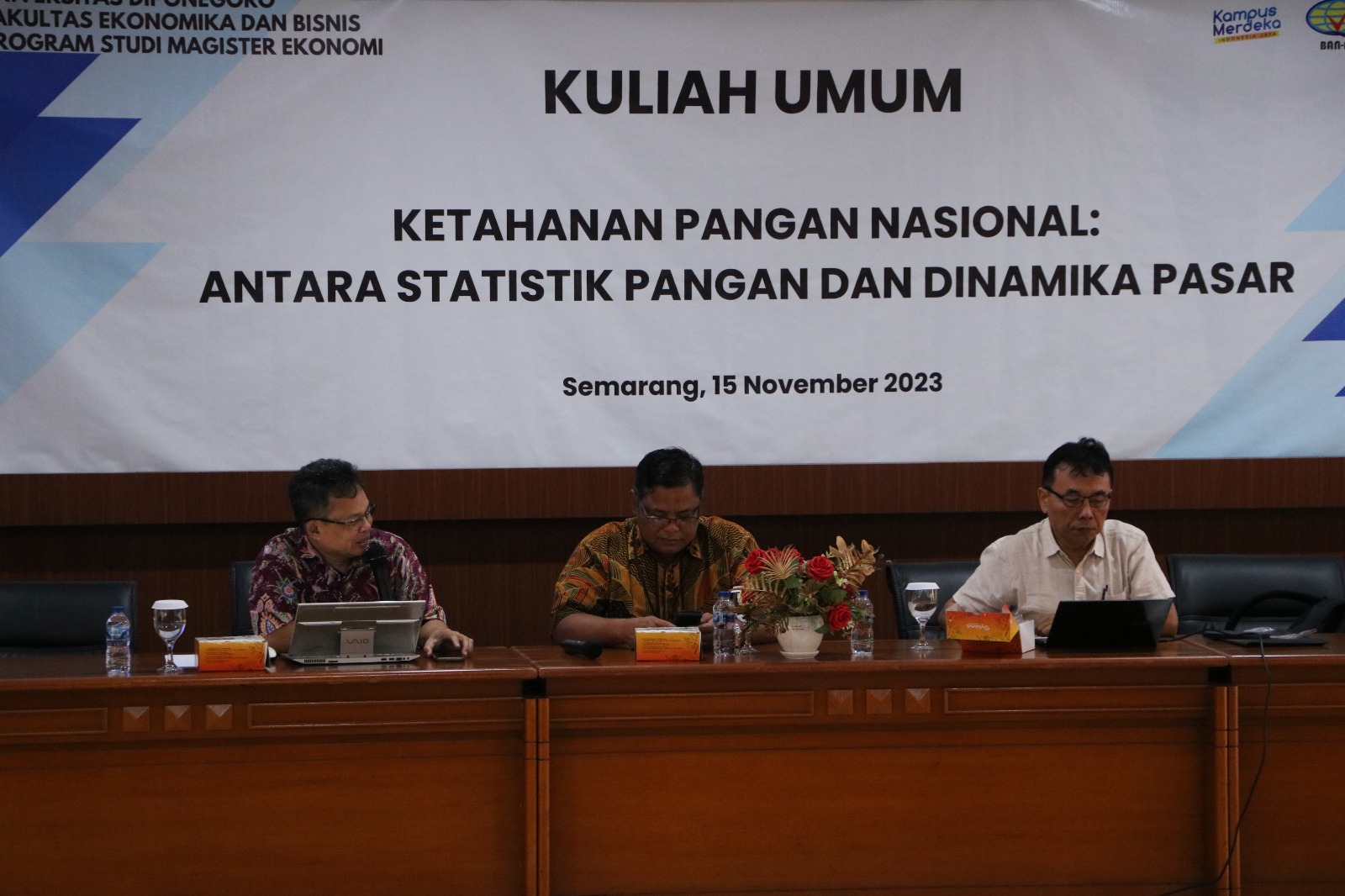Master of Economics Program held a General Stadium with the theme National Food Security: Between Food Statistics and Market Dynamics. This General Stadium was held on Wednesday 15 November 2023, at the Master of Economics Campus, Jl. Hayam Wuruk No. 5 Semarang, attended by participants from the Strata 1 Program, Masters Program and Doctoral Program within the FEB Undip environment.
The resource persons in this General Stadium activity consisted of two people, first speaker Dr. Kadarmanto, M.A., currently serves as Director of Food Crop, Horticulture and Plantation Statistics, Central Statistics Agency (BPS) presenting : Contribution of Food Statistics in Realizing National Food Security. The second speaker is Dr. FX. Sugiyanto, M.S, Professor at the Faculty of Economics and Business, Diponegoro University with a presentation National Food Security Policy Direction: Economic-Political Perspective.
National food security has always been a fundamental issue, both from a technical-scientific and economic-political perspective. From a technical-scientific perspective, we are faced with problems of measurement, recording and governance, or food statistics for short. Food statistics have an important role in realizing true national food security. Statistics are the key to the food balance. Food security is a broad perspective, not just numbers on paper. Behind these numbers are behaviors that show that food security is dynamic, not static. Food security is affected by season/climate, market structure, government policies and also global factors. Food security is holistic-comprehensive.
Meanwhile, from a political-economic perspective, national food security will become increasingly complex. Food security is often identified or interpreted as independence without dependence on other countries. Dependence is considered to weaken national resilience. However, the fact is that Indonesia is a country with an open economy, and not all food products can be supplied domestically. Even though it can be produced, the economic scale is not optimal. On the other hand, food demand continues to increase in line with Indonesia’s population growth.

